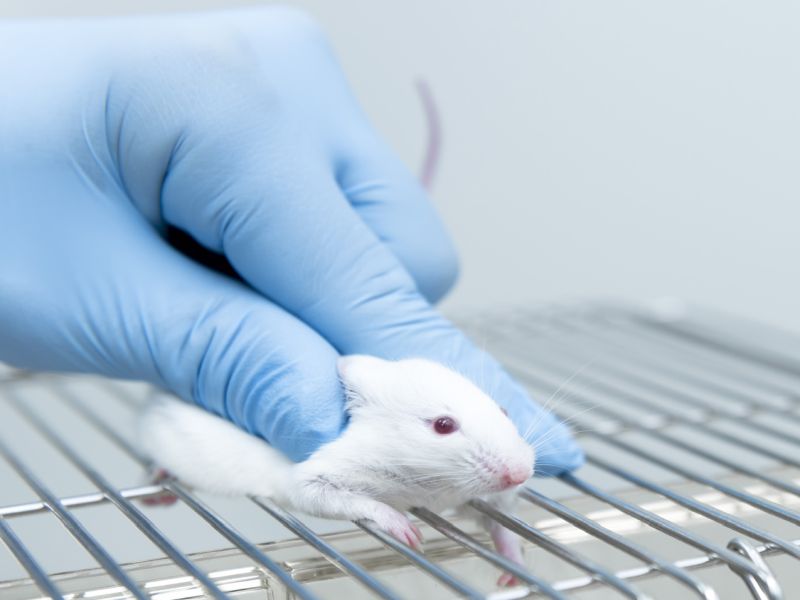
Protein deposits in the pancreas may lead scientists to a better understanding of type 2 diabetes.
The protein — called amyloid polypeptide (IAPP) — collects in the pancreas in people with type 2 diabetes. But whether these deposits cause the disease or appear after the disease begins hasn’t been clear.
Researchers from McGovern Medical School at the University of Texas Health Science Center at Houston injected mice with this protein to try to better define their role in type 2 diabetes. They found that when the mice received this protein, the animals developed symptoms of type 2 diabetes, such as the death of insulin-producing cells in the pancreas and high blood sugar levels.
The study team also injected the protein into pancreatic tissue from healthy human donors. The researchers found IAPP collected in the pancreatic tissue.
“Almost all patients with type 2 diabetes have these protein [deposits], but we don’t know if it’s a disease pathway or a correlate,” said study author Claudio Soto, a professor of neurology.
“I think the IAPP are really essential for the [development of] this disease, and that’s why we did the animal studies,” he said.
Type 2 diabetes begins with insulin resistance. Insulin is a hormone that helps the body usher sugar from foods into the body’s cells to be used as energy. When someone is insulin-resistant, their body can’t use the sugar from foods efficiently. To compensate, the beta cells in the pancreas make more insulin, according to the American Diabetes Association (ADA). Eventually, the pancreas can’t keep up. Beta cells die, and type 2 diabetes develops.
So, how might IAPP be involved in type 2 diabetes? Soto theorized that when insulin production increases, so does IAPP, and the excess IAPP collects in the pancreas.
The study team said that a small number of these “misfolded” protein deposits can then serve as “seeds” that encourage the misfolding of additional proteins. Eventually, large deposits can form that damage the beta cells.
This process is similar to what goes on in “prion” diseases, such as Creutzfeldt-Jakob disease or bovine spongiform encephalopathy (mad cow) disease. These protein deposits are also similar to those seen in Alzheimer’s disease and Parkinson’s disease, Soto said.
Soto also believes that the protein “seeds” can be transmitted from one person to another.
“It’s not like when you have a cold or flu. It’s like the prion diseases. It would likely be transmissible from an organ transplant or maybe a blood transfusion,” Soto suggested.
Not everyone agreed with Soto’s conclusions, however.
“Type 2 diabetes is clearly a complicated disease, but we have to be very careful because it’s not necessarily a transmissible disease,” said Dr. William Cefalu, chief scientific, medical and mission officer for the American Diabetes Association.
“I thought this was a well-done study. It’s a proof of concept study, but can it be readily extrapolated to humans?” Cefalu said.
If this study is validated in other research, Soto believes the information could be used to prevent type 2 diabetes. He also thinks the information could lead to an earlier diagnosis. It’s also possible that researchers could develop new treatments to eliminate or reduce these deposits, he said.
However, a New York City specialist said many more studies are needed to determine the role of these amyloid deposits in the beta cells.
Also, “there is no evidence clinically of type 2 as a contagious disease,” added Dr. Joel Zonszein, director of the Clinical Diabetes Center at Montefiore Medical Center.
Plus, Zonszein pointed out that IAPP isn’t always bad. The beta cells in the pancreas normally co-secrete insulin and IAPP. It’s only when the misfolded proteins start depositing in the pancreas and destroying the beta cells that it becomes an issue.
In fact, Zonszein said there’s a diabetes medicine that boosts levels of this protein. The medication, pramlintide (Symlin), slows the absorption of food and may cause some weight loss, according to the ADA.
All three experts said more research is needed, and that another study team needs to replicate the findings. Soto next hopes to study these deposits in non-human primates.
The findings were published Aug. 1 in the Journal of Experimental Medicine.
More information
Learn more about lowering your risk of type 2 diabetes from the American Diabetes Association.
Source: HealthDay

Leave a Reply